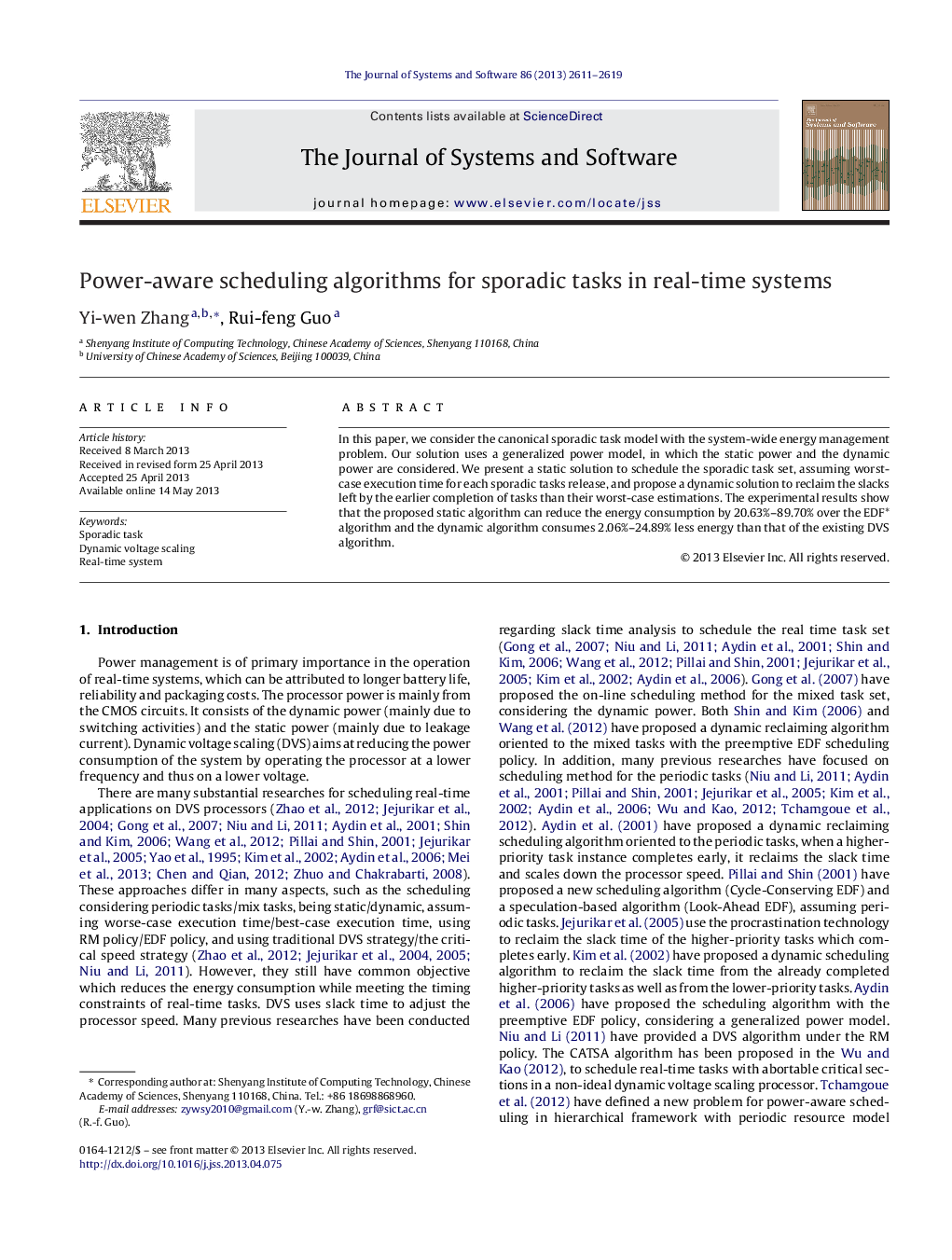| Article ID | Journal | Published Year | Pages | File Type |
|---|---|---|---|---|
| 461794 | Journal of Systems and Software | 2013 | 9 Pages |
•We consider the canonical sporadic task model and a generalized power model.•We present a static solution to schedule the sporadic task set.•We propose a dynamic solution to reclaim the slack time.•The algorithm is scheduled by EDF* policy.
In this paper, we consider the canonical sporadic task model with the system-wide energy management problem. Our solution uses a generalized power model, in which the static power and the dynamic power are considered. We present a static solution to schedule the sporadic task set, assuming worst-case execution time for each sporadic tasks release, and propose a dynamic solution to reclaim the slacks left by the earlier completion of tasks than their worst-case estimations. The experimental results show that the proposed static algorithm can reduce the energy consumption by 20.63%–89.70% over the EDF* algorithm and the dynamic algorithm consumes 2.06%–24.89% less energy than that of the existing DVS algorithm.
